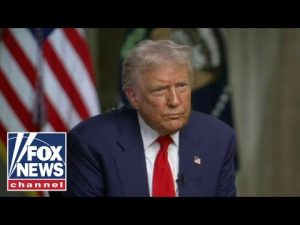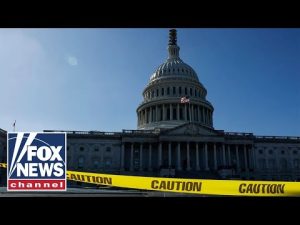The United States and its leaders have long grappled with the challenge of addressing international crises, and President Trump is no exception. The issue at hand is the violence in Nigeria, where Islamic terrorists have terrorized Christians and even their fellow Muslims for years. Now, President Trump is turning up the heat on the Nigerian government with a bold stance that has left many raising their eyebrows. Threatening to not only cut aid but also send the military “guns a-blazing,” the President seems to be channeling a “peace through strength” approach reminiscent of the Reagan era.
As President Trump’s Americas First agenda evolves, it seems some of his critics from the early days had it wrong. Instead of pursuing isolationism, the President is striking a more assertive stance on the global stage. This time, Nigeria is in the crosshairs, and the message to the government there is clear: stop the violence, or face American intervention. It’s a high-stakes game of international brinkmanship, and the President is warning that the United States is watching closely.
Amid this diplomatic drama, voices from Nigeria are pleading for help. A local businesswoman expressed a sense of desperation, emphasizing that the violence shows no signs of stopping. The sentiment is common across parts of Nigeria, where the fear and threat of terrorism remain daily realities. Yet, some Americans continue to debate whether the United States should be the world’s policeman. As much as the businesswoman and other Nigerians feel that the situation demands US involvement, the discussion back home is far from settled.
Opinions differ on whether the United States should intervene militarily. Some argue that sending in troops could lead to more chaos rather than a solution. As brutal as the statistics are — with over 52,000 Christians reportedly killed since 2009 — there’s no clear-cut answer to how the United States should respond. And while intervention might momentarily suppress the violence, history has shown that foreign involvement doesn’t always lead to lasting peace. The situation is indeed dire, but the path forward is a murky one.
Ultimately, President Trump seems keen on showing that the United States can be a force for moral good. His administration has at least highlighted that the world is watching, which is something. Whether military action is the answer or not, America’s responsibility on the global stage is to speak up against such atrocities. As the debate continues, President Trump must balance his tough talk with cautious action, ensuring that any decision serves both American interests and global humanity.







